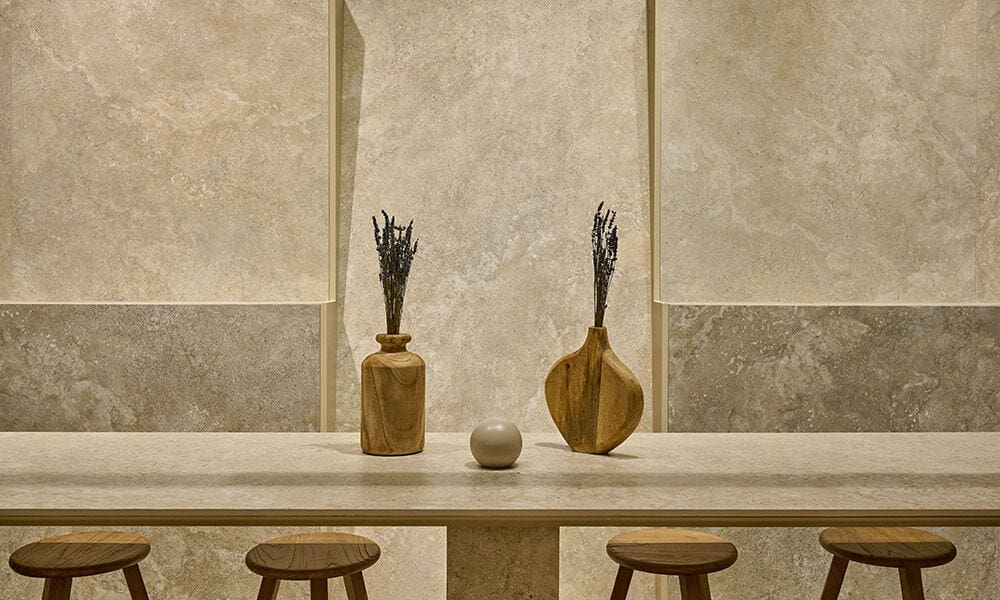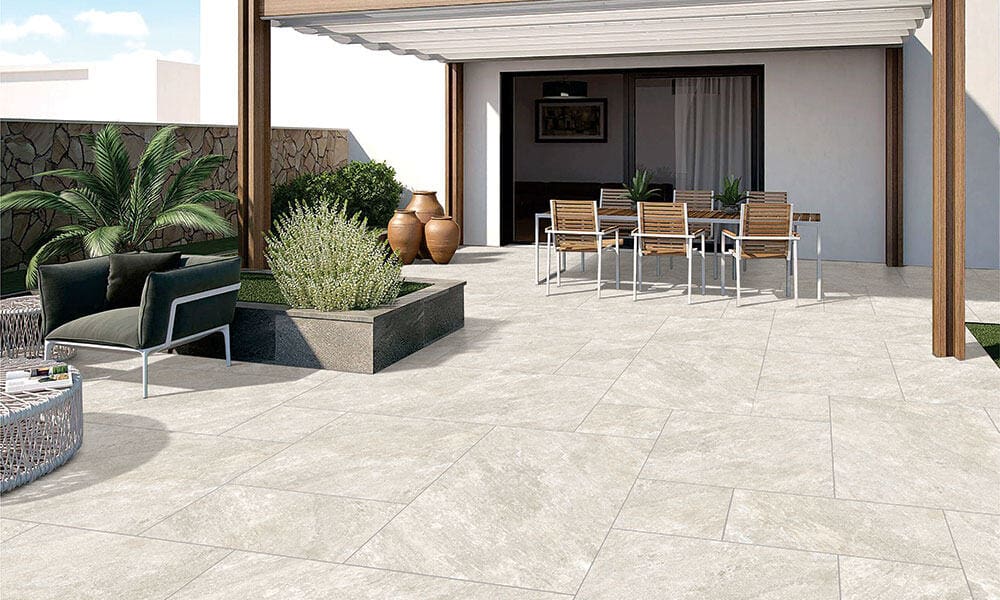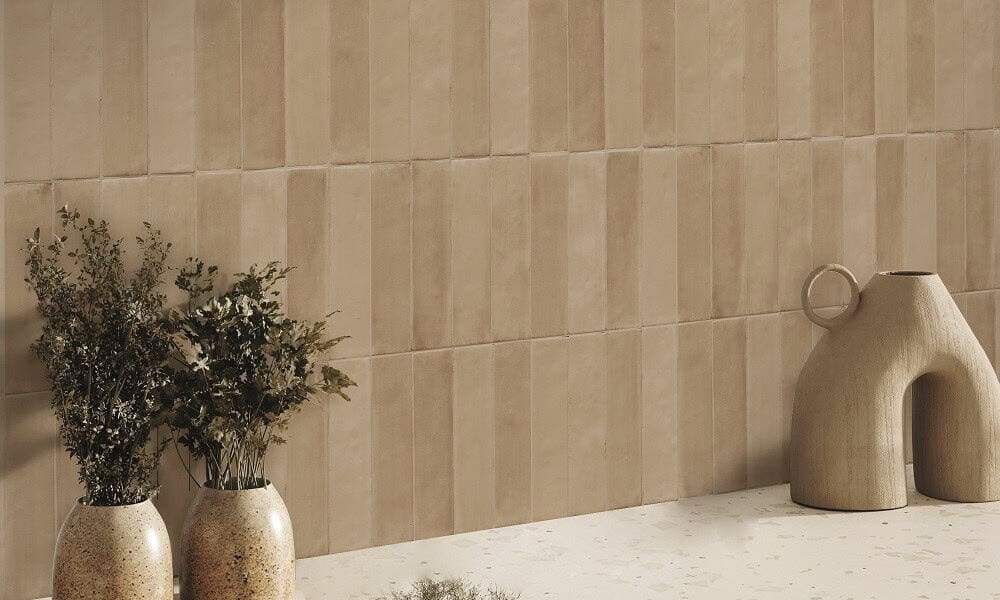Let’s imagine you walk into a corporate building, and the first thing you notice are stains splattered across the porcelain tiles. Not quite a good impression, right? Keeping a commercial tile floor immaculate is not only crucial for aesthetics but also for hygienic reasons.
Tiles can harbour dirt, grime, and bacteria, and an improper cleaning routine may damage the tile surface. Let us guide you through understanding the demands and how to maintain ceramic and porcelain tiles, ensuring they continue to shine.
Understanding the Basics: Tile Floor Types
When it comes to tiles, the myriad of options available can seem overwhelming. The most common types include ceramic, porcelain, commercial vinyl, and unglazed tiles. Each varies in durability, staining character, and care and maintenance needs. Porcelain tiles are known for their great durability and low maintenance needs, while ceramic tiles are easy to clean but are more porous and prone to breakage.
- Ceramic Tiles: These are thin, lightweight, and easy to install. However, ceramic tiles are less durable than porcelain and can break easily.
- Porcelain Tiles: They are dense, more durable and less porous than ceramic tiles, limiting the chances of stains and dirt.
- Commercial Vinyl: Highly durable and excellent for high foot traffic, commercial vinyl is a cost-effective choice for commercial spaces.
- Unglazed Tiles: Although they create a natural aesthetic, they require a sealing layer to protect against staining and grout issues.
The Complete Guide: Cleaning Commercial Tile Floors
The reality is that cleaning tile floors requires more than a mere sweep or vacuum. They require a proper cleaning plan, the right cleaning agents, and tools. For a great result, you’ll need to prepare by choosing the right cleaning solution and tile cleaner based on the type of tile and grout. Baking soda and water work great as a natural cleaning agent, especially for grout cleaning.
- Step 1: Start sweeping or vacuuming the floor to eliminate dust and debris from being tracked into the grout lines.
- Step 2: Create your cleaning solution. Mix your chosen detergent with warm water and mop your tile floor.
- Step 3: Focus on the grout. Use a scrub brush or sponge to clean the grout lines with your cleaner.
- Step 4: Rinse the area thoroughly with clean water. Use a squeegee or towel to absorb any remaining water, preventing further stains.
Proper maintenance is key to preventing any spill from becoming a permanent stain. With regular maintenance, your commercial tile floor will look clean and preserve its durability so you can continue to enjoy its benefits in your commercial space.
The Do’s and Don’ts: What to Avoid when Cleaning
Knowing what not to do is as important as knowing the do’s in any task. This concept rings true, especially when cleaning tile floors, where one abrasive action can mar its beautiful surface. In our case at Mudrak & Sons, our professional tile experience exposes us to various ways people unintentionally ruin their flooring.
Avoid Harsh Cleaning Products
The first among these is the use of harsh cleaning products. Always scrutinise the cleaning products for the tile you’re using. Many tile floors, especially ceramic tiles and porcelain surfaces, are not designed to handle abrasive substances.
Over time, these abrasive cleaners can dull the tile’s surface, leading to an undesirable look. Instead, opt for neutral pH or commercial cleaners, which are gentle yet effective.
Water is Not Always the Solution
You may want to consider that hard water isn’t beneficial. Not all water is the same – hard water, which contains high mineral content, often leaves spots and residue on your tiles. To avoid this, rinse the area with clean water after every wash.
Professional Cleaning is Worth Every Penny
Almost equally especially important is understanding the beauty of professional cleaning. It may seem like an unnecessary expense at first, but the change in the cleanliness and shine of your tiles will quickly convince you otherwise. Professional cleaners can deep clean, especially in commercial settings, to keep your commercial tile floors at their best.
Surface Matters: Understanding the Difference between Ceramic and Porcelain Tiles
Understanding the basic difference between ceramic and porcelain tiles is key to maintaining them. Based on their makeup, both tiles have varied stains and durability behaviours, directly impacting the cleaning and maintenance process.
Ceramic Tiles
Compared to porcelain, ceramic tiles have a softer surface and are more prone to scratches and stains. To maintain their aesthetic appeal, these tiles must be cleaned frequently with a floor cleaner. A cleaning routine that includes sweeping or vacuuming to remove dirt and debris and maintaining ceramic tile with a damp mop dipped in warm water, and mild detergent will help you keep your ceramic tile looking pristine.
Porcelain Tiles
On the other hand, porcelain is denser and less porous and is more resistant to stains and moisture, leading to less significant routine maintenance. Use a cleaning and care routine as suggested by the manufacturer’s instructions and stick to it for best results.
Detailed Tutorial: Effective Techniques to Clean Grout
Between the spaces of your beautiful tiles lies the grout which holds it together. However, grouts are also notorious for attracting grime and dirt, and their porous nature makes them susceptible to stains. Therefore, a step-by-step guide to cleaning grout is essential for your overall tile maintenance guide.
Cleaning Tile Grout
- Wet the grout line with warm water. This loosening up of dirt and grime is especially important in cleaning.
- Apply tile grout cleaner on the grout. Let it sit for a few minutes before scrubbing to let the cleaner penetrate.
- Use a cleaning brush to scrub off the dirt. For stubborn stains, a baking soda and vinegar mixture will do wonders. However, avoid using too much force that can damage the grout.
- Once you’ve scrubbed out the dirt and stains, rinse the area with clean water and mop up any leftover moisture. Moisture can breed bacteria and can be harmful to your grout.
Remember to clean your grout lines deep once every year professionally, in addition to regular home cleaning. Not only does this maintain your tile installation in top shape, but it also helps prevent grout discolouration, saving you from costly repairs.
Solution Spotlight: Best Tile Maintenance and Floor Care Products
When it comes to commercial flooring, selecting the right tile care products is crucial for maintaining the cleanliness and longevity of your floors. It’s not just about choosing high-quality tiles; it’s also about ensuring you have the best cleaning and maintenance products available.
Depending on the type of tiles you have, be it ceramic, porcelain, or natural stone, the cleaning products you may need will vary. Some universally recommended products you should keep in your arsenal are general floor care cleaners, scrubbing powders for deep cleaning, and specialised sealers.
- Floor Care Cleaners: Essential for keeping your floors clean and looking great. They can be used to clean up spills quickly to avoid staining and regular cleaning to freshen up the floor space.
- Scrubbing Powders: A good scrub powder can be your best friend for those stubborn spots. Remember, cleaning tough stains involves step-by-step instructions, beginning with the application, letting it sit, and then scrubbing away the grime.
- Sealers: A solid sealer is a must-have if your commercial flooring is mostly natural stone or unglazed tiles. The sealer acts as a protective layer on top of your tiles, preventing dirt and grime from penetrating and making your tiles easier to clean.
Sealing the Deal: The Whats and Whys of Sealing Your Tiles
Sealing tiles can seem unnecessary, but it plays a pivotal role in floor care. But why should you seal your tiles, and how often should this process be performed?
Sealing tiles essentially provide a protective barrier on the surface. Especially in a business environment with high footfall, tiles experience a lot of wear and tear, and unsealed tiles can appear shabby over time. Applying a sealer can mitigate this issue. Not only does it revitalise the look of the tile, but it also makes regular cleaning easier as dirt and grime struggle to penetrate the sealed surface.
The frequency of resealing depends on the type of tile and the traffic it undergoes. Generally, it is advisable to do this once or twice a year for heavily used commercial flooring. Different sealers suit different tiles, so choose the correct sealer for your tile type.
Commercial Flooring Care: Beyond the Tiles
Commercial flooring care doesn’t end with just your tile floors. If your business also has commercial carpets, similar attention is needed for carpet care. Remember, a comprehensive floor care guide includes hard and soft surface cleaning.
Professional cleaning plays a vital role in commercial settings. Outsourcing to experts who know how to care for and maintain commercial flooring masterfully can, in turn, extend the lifespan of this valuable asset. They know how to change the cleaning routine according to the flooring type and can efficiently remove the cleaning residues compared to regular cleaning.
Keeping your flooring, be it tile or carpet, in top condition reflects your dedication to cleanliness and health, which leaves a lasting positive impression on clients and staff alike.



